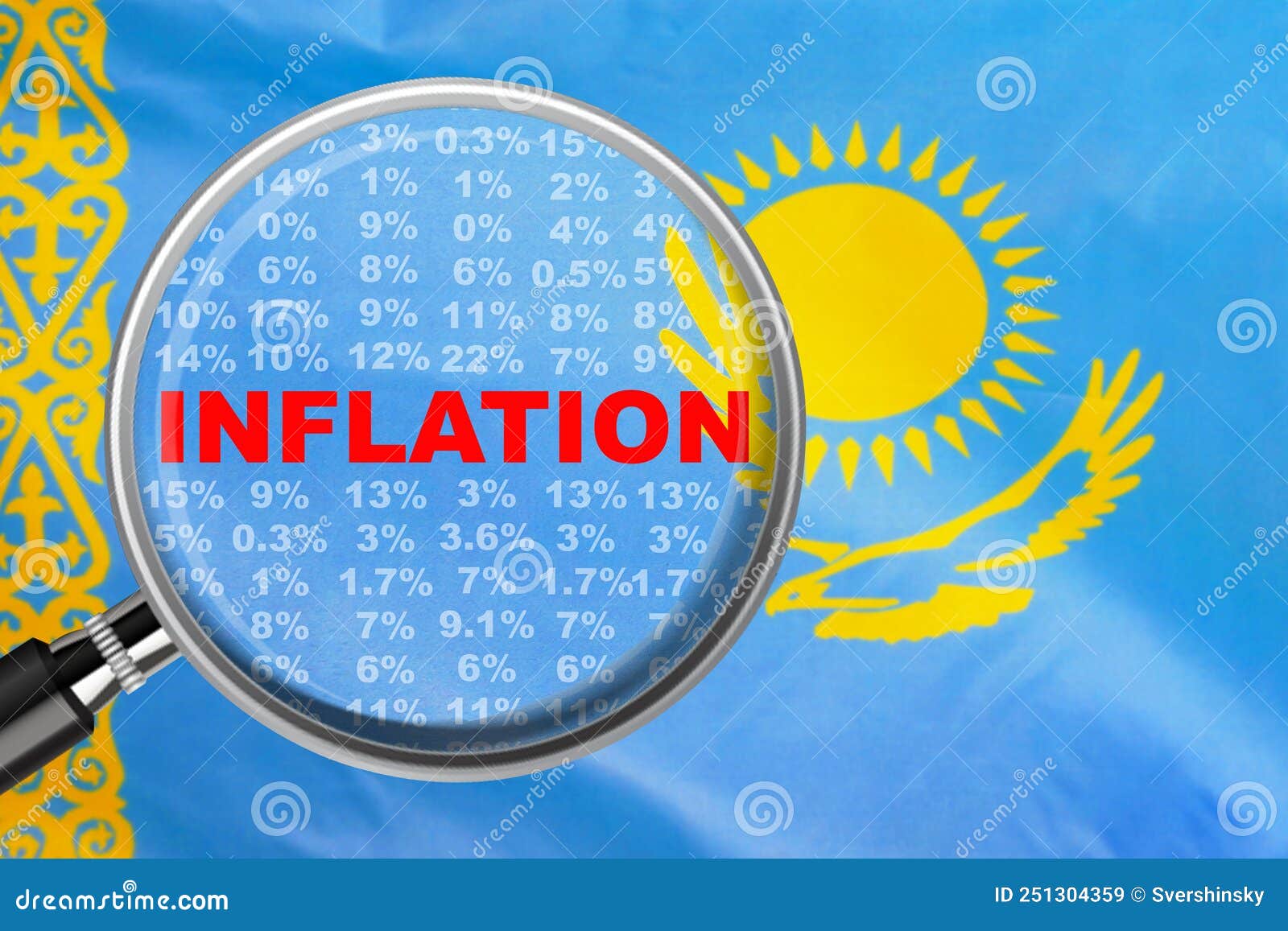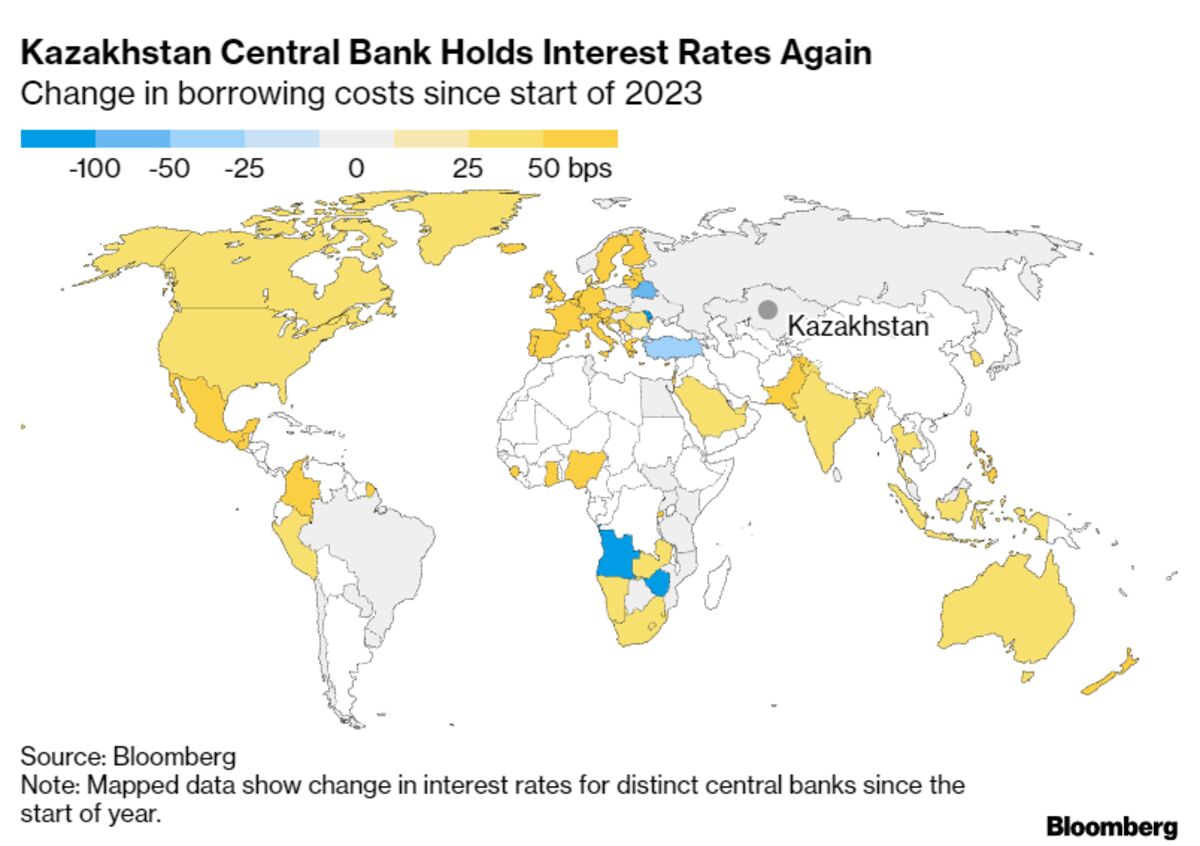Kazakhstan Raises Key Rate to 16.5% Amid Surging Inflation: A Crucial Step for Economic Stability
In a move aimed at curbing inflation, the Central Bank of Kazakhstan (CBK) has increased the key interest rate to 16.5%, marking a significant adjustment to the monetary policy landscape. This development has sparked interest among economists and investors, who are eager to understand the implications of this decision on the country's economy. In this article, we will delve into the details of this monetary policy adjustment, exploring its causes, effects, and potential consequences for Kazakhstan's economic growth.
The inflationary pressure in Kazakhstan has been rising steadily over the past few years, driven by a combination of factors such as a depreciation of the tenge currency, rising food and energy prices, and an increase in production costs. The Central Bank has been working to mitigate the effects of inflation, but the rate of increase has been stubborn, necessitating a bold move to inject some restraint into the economy.
Understanding the Causes of Inflation in Kazakhstan
The causes of inflation in Kazakhstan are multifaceted and complex. Some of the key factors contributing to the surge in inflation include:
- Depreciation of the tenge currency: The depreciation of the tenge against the US dollar has made imports more expensive, leading to higher prices for goods and services.
- Rising food and energy prices: The prices of staple goods such as wheat, sugar, and cooking oil have increased significantly, putting pressure on household budgets.
- Increase in production costs: The costs of production have risen due to higher transportation costs, fuel prices, and labor costs, which have been passed on to consumers.
The Impact of the Interest Rate Hike on the Economy
The Central Bank's decision to raise the key interest rate to 16.5% is intended to combat inflation by reducing borrowing costs and curbing consumption. This move is likely to have the following effects on the economy:
- Reduced borrowing costs: Higher interest rates will make borrowing more expensive, which should lead to a decrease in consumption and investment.
- Increased savings: Higher interest rates will make savings more attractive, which should encourage households and businesses to save more.
- Increased competitiveness: Higher interest rates will make Kazakhstan's exports more competitive in the global market.
How the Interest Rate Hike Will Affect Different Sectors of the Economy
The impact of the interest rate hike will vary across different sectors of the economy. Some of the sectors that are likely to be affected include:
- Agriculture: Higher interest rates will make borrowing more expensive, which could lead to reduced investment in agricultural production.
- Manufacturing: Higher interest rates will increase the cost of production, which could lead to reduced competitiveness and lower demand.
- Services: Higher interest rates will reduce borrowing costs, which should lead to increased investment in the services sector.
Potential Consequences of the Interest Rate Hike
The interest rate hike has the potential to have both positive and negative consequences for the economy. Some of the potential consequences include:
- Reduced economic growth: Higher interest rates can reduce borrowing and consumption, which can lead to reduced economic growth.
- Increased unemployment: Higher interest rates can lead to reduced investment and hiring, which can increase unemployment.
- Reduced economic stability: Higher interest rates can lead to increased economic instability, which can make it difficult to manage inflation and achieve economic stability.
Conclusion
The Central Bank's decision to raise the key interest rate to 16.5% is a crucial step towards curbing inflation and promoting economic stability. While the move has the potential to have both positive and negative consequences, it is likely to have a positive impact on the economy in the long run. As the economy adjusts to the new interest rate, it is essential to monitor the developments and make adjustments as needed to achieve economic stability.
Frequently Asked Questions
- What is the main cause of inflation in Kazakhstan?
- The depreciation of the tenge currency, rising food and energy prices, and increase in production costs.
- What is the impact of the interest rate hike on borrowing costs?
- Higher interest rates will make borrowing more expensive, reducing consumption and investment.
- How will the interest rate hike affect different sectors of the economy?
- Agriculture, manufacturing, and services will be affected differently, with some sectors potentially benefiting and others facing challenges.
Localeo Rank Checker
Rami Malek Portiaoubleday
Hisashi Ouchi Real Images
Article Recommendations
- How Tall Isabrina Carpenter
- Nikki C
- How Tall Iarleyhimkus
- Pinoy Candal
- Millie Bobby Brown
- Julesari
- Nia Hill
- Justin Trudeau Net Worth
- Shameera
- Errol Musk Net Worth



